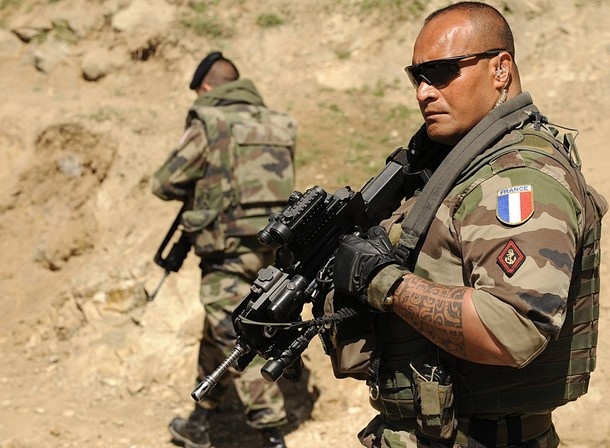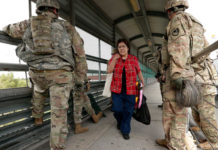The French “Legion Etrangere” or French Foreign Legion is a cross between the US Army Rangers and Navy Seals. The difference is the Legion is made up mostly of non-French citizens enlisting to serve France (though some French volunteers do exist) under French officers. Though the Legion is small and is comprised of only 4 regiments about 9,000 strong, it bares the majority of all combat missions wherever French national interests are at stake and power needs to be projected. Legion operations range from former French colonial territories such as Mali to the global war on terror. While the regular French military forces is viewed as being generally weak, the Legion is one of the foremost fighting units in the world. Anywhere there is trouble and French forces are needed, the Legion is sent.
In its storied history, the Legion suffered approximately 40,000 combat deaths since its founding in 1831 as a colonial fighting force not including all those who died from other causes. Legionnaires are instilled with the idea that fighting to the death is the only acceptable course of action and many times they do. For France, it is an elite but expendable fighting force that can be used at any time without risking the lives of French men and women serving in their regular forces. Despite the brutal conditions in training and dangerous military operations in some of the worst war zones, men still show up from across the world at Legion recruiting offices daily to volunteer.
Picture: The romantic embodiment of the Legion, soldiers marching through the Arabian desert in their “White Kepi” reserved solely for Legionnaires.

Any able-bodied young man may join regardless of their citizenship or origin. As long as the candidates are not wanted for serious crimes by INTERPOL, any legal transgressions are overlooked. Just show up at a Legion Etrangere recruiting station with a willingness to learn French, pass the initial screening and pass the first phase of military training, the recruits will receive their Kepi Blanc. At least 86 different nationalities are typically serving at any one time and all must learn to speak French to be allowed to pass training. Upon joining the Legion, the recruits are issued a French name complete with fake background information (location of birth) and pending success service of at least 3 years, will be issued French citizenship. After WWII, many high ranking Nazi officers and veterans joined the Legion to escape prosecution or simply to stay in their chosen military profession. Upon retirement of service, the Legionnaire will receive the full retirement benefits of any French citizen.
The Legion has one of the most colorful unit histories in the world and carries with it a romantic mystique. It has always attracted its share of poets, scoundrels, adventurers, or simply men looking to get a fresh start in a new country. Legionnaires fought in every major war for France since their inception and continuously fights in far-flung small conflicts during peacetime. During the Mexican war of independence, the Legion surrounded and outnumbered at a fort continued to fight on and refused surrender until the five remaining soldiers were allowed to leave the fort with their weapons by the Mexicans. The Legion’s status as elite troops loyal to France was tarnished slightly during a revolt in 1958 staged by rebellious French officers. The Legion units remained loyal to the rebel officers until the coup failed and the officers surrendered. Since then, there is a law that only one of the Legion’s parachute regiments may be on French soil at any one time.

Video: Homelessness and mental health issues effect veterans of all wars and in all countries. The Legion has a retirement home for their own who cannot integrate into civilian life. https://www.youtube.com/watch?v=pjxsFH7qngQ
The US does not have an equivalent system to the Legion. Non-US citizens serving in the US Armed Forces are given consideration in receiving citizenship but it is not a formal path within the naturalization process of becoming a US citizen. Since non-US citizens already serve in the military, why not formally institute a Legion-like unit where loyal service guarantees citizenship? Just a thought.

























